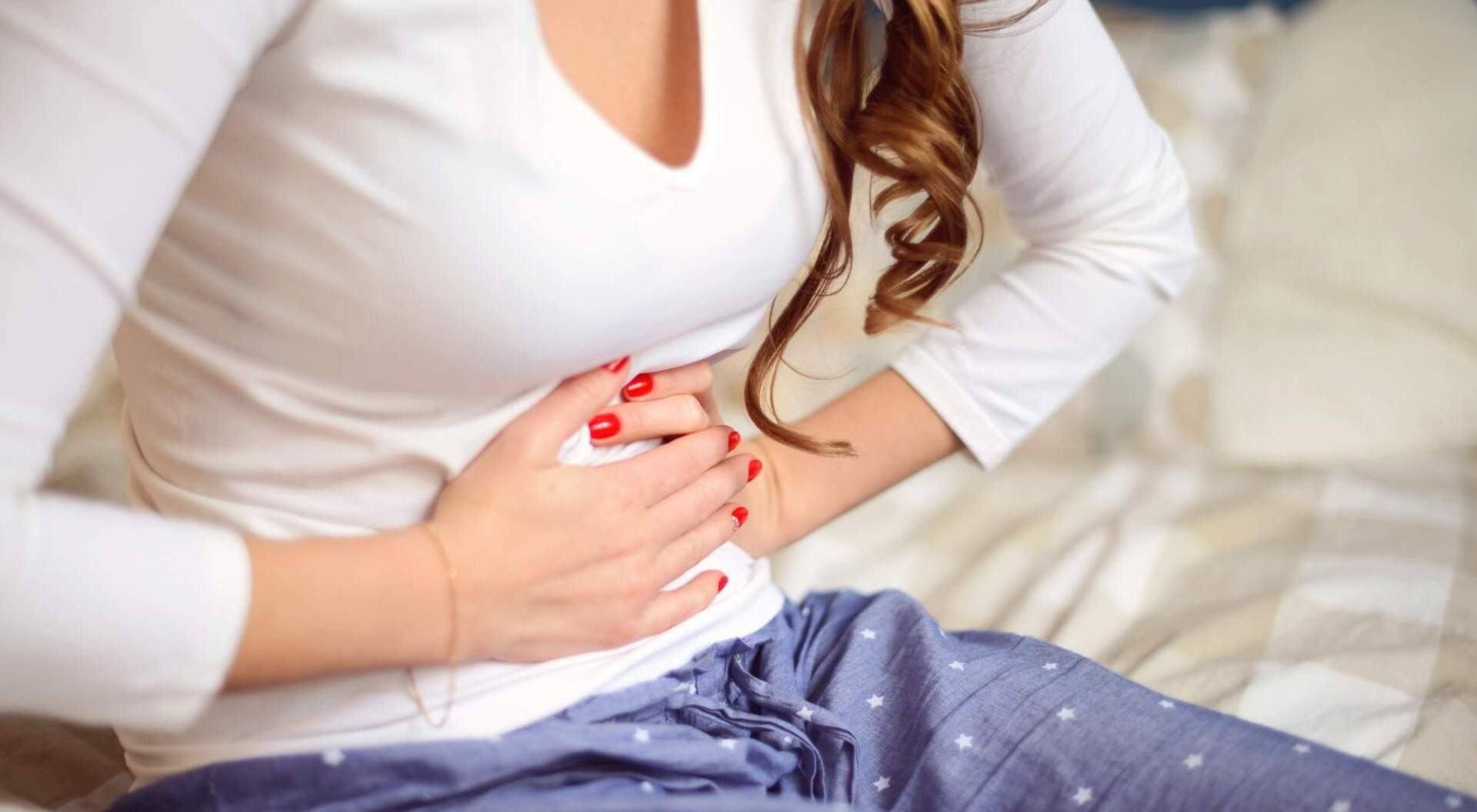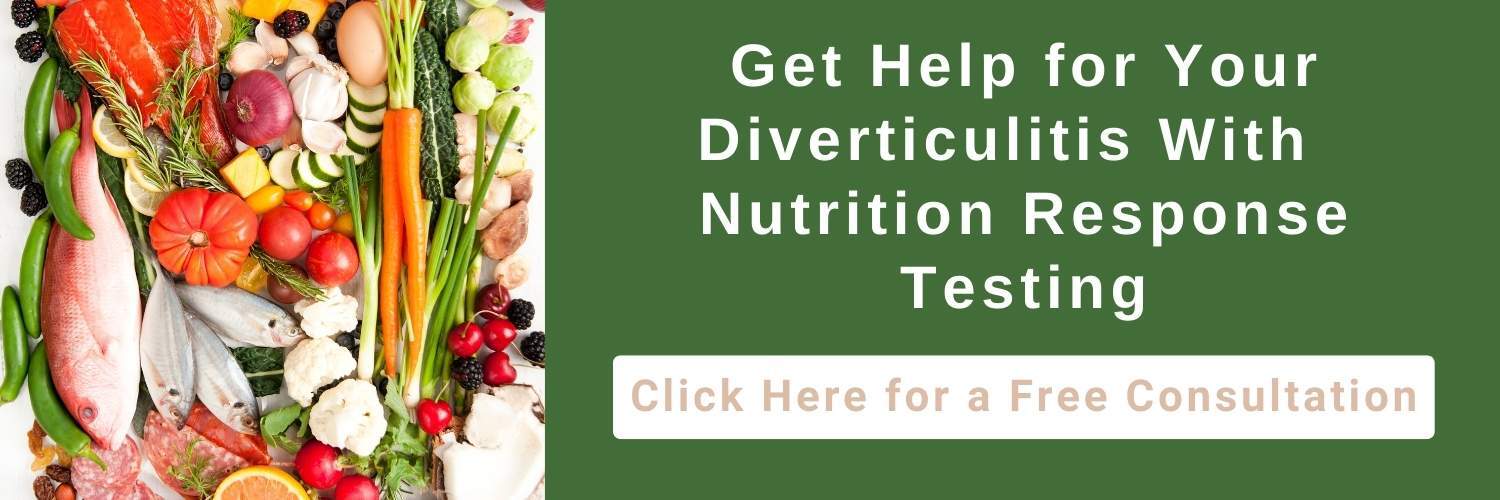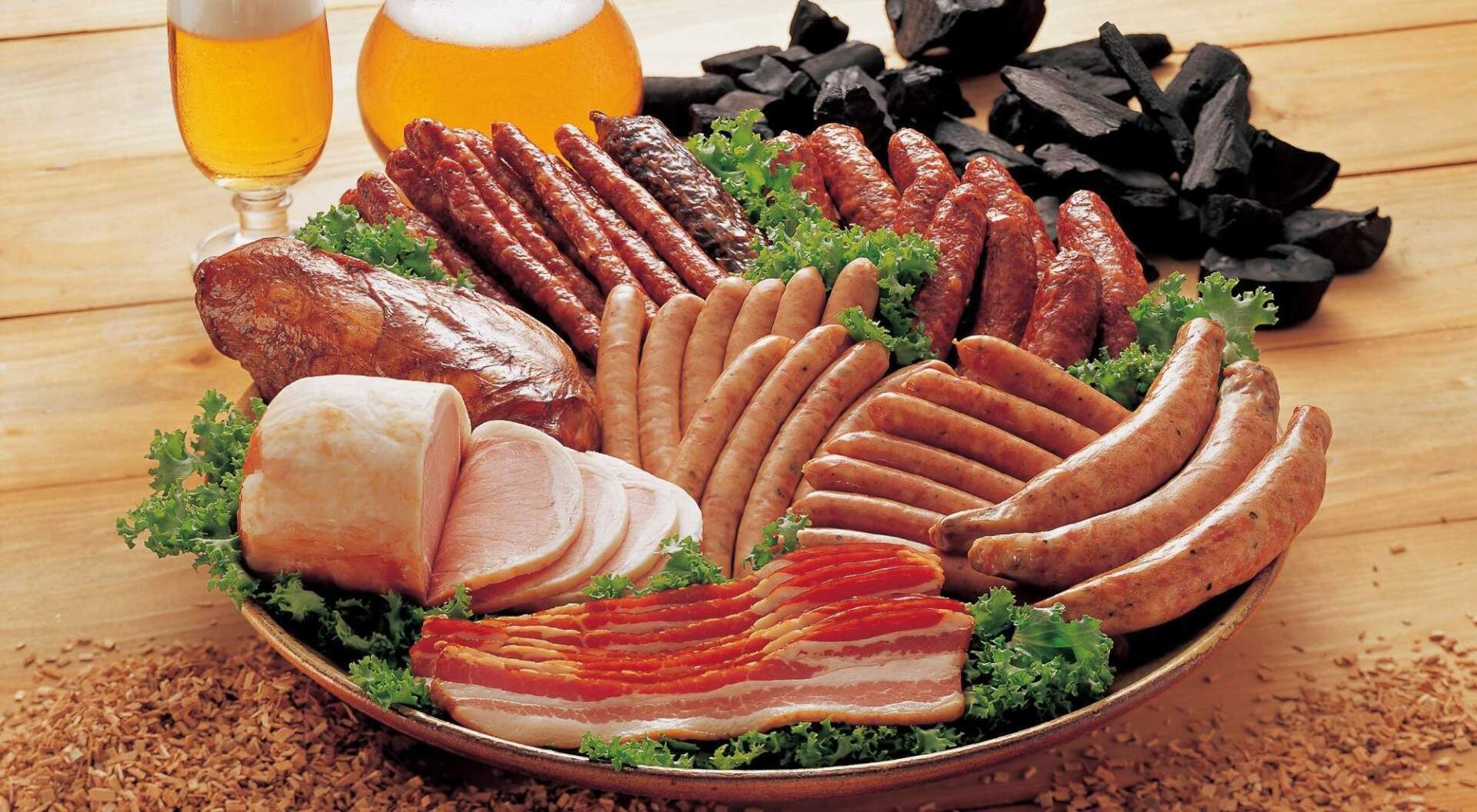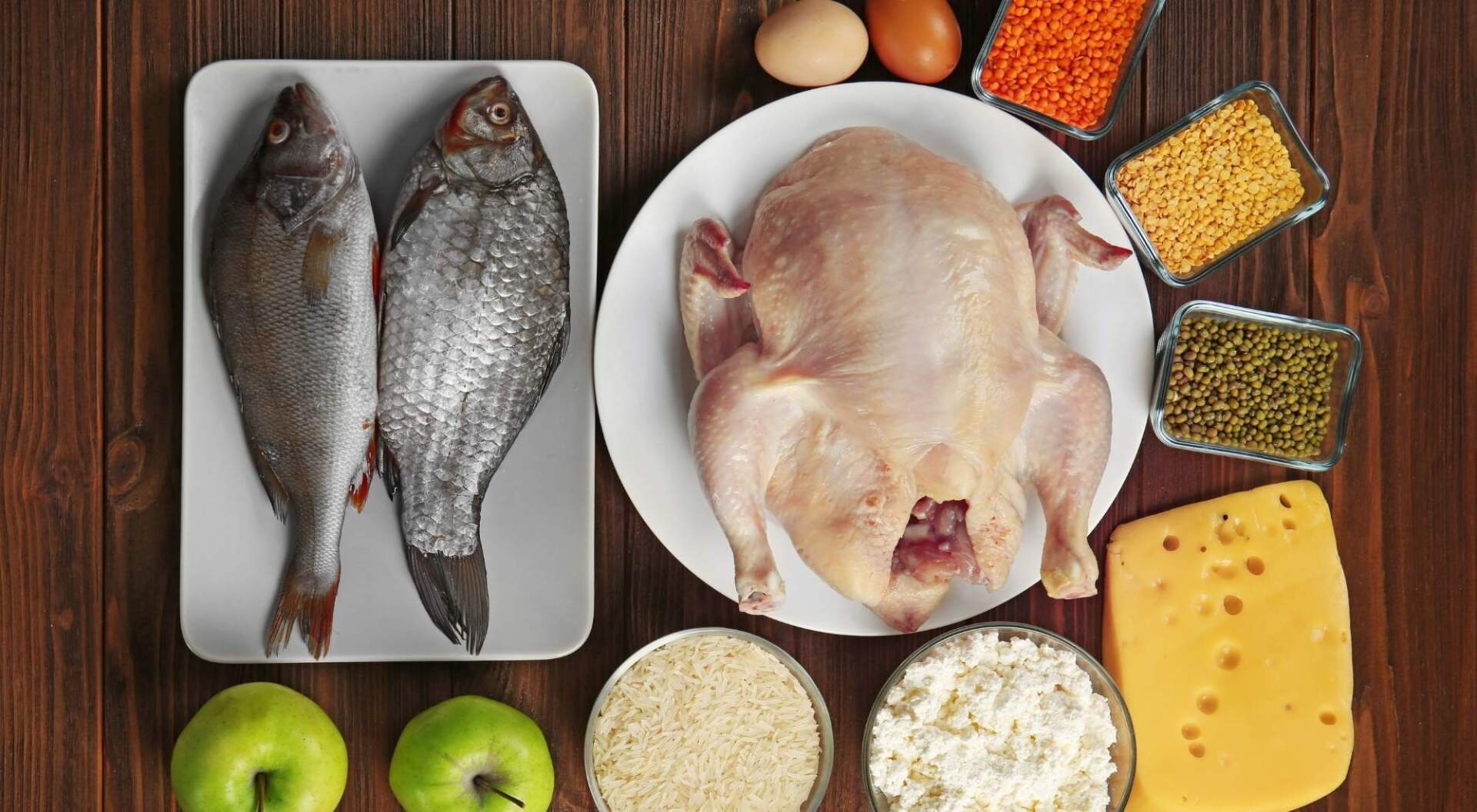Foods To Avoid With Diverticulitis and How To Find Relief From This Painful Condition
"The content below is not intended to be a substitute for professional medical advice, diagnosis, or treatment. Always seek the advice of your physician or other qualified health provider with any questions you may have regarding a medical condition."
You’re feverish. You’re experiencing sharp abdominal pains. You’re bloated and you have diarrhea.
You know what this is. You’ve been here before.
Diverticulitis flare-ups can be intensely painful and uncomfortable — and sadly, they can last for days.
But, with the right diet, your flare-ups may become less frequent and less severe.
We share the five types of foods to avoid with diverticulitis and what you can be eating regularly to help maintain your gut health.
Table of Contents
Can Diet Help With Diverticulitis?
Diverticulitis is an infection of the diverticula and affects the digestive tract. More common in older adults, diverticula develop when weak spots in the intestinal wall bulge out due to pressure. If these areas become infected or inflamed, it is considered diverticulitis.
Some complications or health problems caused by diverticulitis include:
- Severe abdominal pain
- Nausea
- Fever
- Bloody stools
- Inflamed pockets of tissue (abscesses); and
- Fistula
Managing diverticulitis depends on the individual. Some doctors believe it’s important to avoid certain foods, while others disagree.
If you’re suffering from diverticulitis, Nutrition Response Testing (NRT) can help determine which foods are right and wrong for your specific condition.
NRT is a non-invasive method of analyzing organ function to help determine the root causes of diverticulitis and other ailments. The process of NRT involves analyzing deficiencies and toxicities in the body so that patients can make informed choices about the foods and supplements they choose.
For more information about Nutrition Response Testing, contact Dr. Donna Sergi of
HealthierU in Brooklyn, NY.
Dr. Sergi has successfully used NRT to identify the underlying causes of many health problems and can create an individualized health plan that will help ease diverticulitis flare-ups.
What Foods Trigger Diverticulitis?
There are no known foods that trigger diverticulitis flare-ups, nor is there a proven diet to prevent attacks. However, some doctors believe there are certain foods to avoid with diverticulitis, including:
- High FODMAP foods
- Foods high in sugar and fat
- Red and processed meats
- Some nuts, seeds, and popcorn; and
- Alcohol
5 Types of Food To Avoid With Diverticulitis
#1: High FODMAP Foods
FODMAP is the abbreviation for fermentable oligosaccharides, disaccharides, monosaccharides, and polyols… but that’s a mouthful, so we’ll stick to FODMAP.
Lowering your intake of FODMAP foods may help alleviate some symptoms associated with diverticulitis.
One hypothesis suggests that, when combined with a high-fiber diet, FODMAP foods may be responsible for excess gas that triggers diverticulitis symptoms.
FODMAP foods include:
- Sugars and sweeteners
- Pulses and legumes
- Dairy foods
- Breads and cereals
- Onions, garlic, mushrooms, and cauliflower
- Peaches, apples, pears, apricots, and dried fruits
However, some of these foods are also high in fiber and may be beneficial to patients with diverticulitis. It’s important to discuss any concerns with particular foods with your healthcare provider before making drastic changes to your diet.
#2: Foods High in Sugar and Fat
Western diets are often high in sugary and fatty foods, while being low in fiber. This may contribute to the risk of developing diverticulitis.
One study suggests that avoiding certain fatty and sugary foods, such as …
- Fast food
- Fried food
- Candy and chocolate
- Baked goods
- Breakfast cereals
- Soda and juice
- And more
… may prevent diverticulitis or help reduce the symptoms.
#3: Red and Processed Meats
Some research has linked red meat consumption to a higher likelihood of getting diverticulitis. One study suggests that adhering to a healthier lifestyle and consuming less than 51 grams of red meat per day could prevent about 50% of diverticulitis cases.
Red and processed meats include:
- Beef and lamb
- Bacon
- Sausage
- Hot dogs
- Ham
- Cold cuts; and
- Canned meats
Substituting red meat with fish or poultry, combined with a diet high in fiber and two to three hours of exercise every week, may help reduce the risk of diverticulitis flare-ups.
#4: Some Nuts, Seeds, and Popcorn
Medium-sized seeds or nuts may be difficult to digest, which could lead to diverticulitis. Chewing foods, such as popcorn, sunflower seeds, corn on the cob, etc. really well will help speed digestion and reduce the risk of a flare-up.
Nuts and seeds can be found in many high-fiber foods, which are recommended for patients with diverticular disease. Just be sure to eat slowly and chew your food very well.
#5: Alcohol
Alcohol may cause diverticulitis symptoms and may even increase the risk and frequency of flare-ups.
Additionally, if you’re taking medication for diverticular disease, alcohol can cause further complications.
Consuming alcohol in moderation will also help you to avoid making poor diet choices. Lower alcohol intake combined with a balanced diet will decrease the risk and frequency of flare-ups.
What Foods Can Ease Diverticulitis Flare-Ups?
Severe flare-ups may require a clear liquid diet followed by a low-fiber diet.
Clear liquid diets may help ease symptoms, however, you should never stay on a clear liquid diet for more than two days as you run the risk of becoming malnourished.
Clear Liquid Diet for Diverticulitis
If you’re experiencing a severe flare-up, a clear liquid diet for a day or two may help ease your symptoms.
On a clear liquid diet, you can have:
- Clear juices, such as cranberry or apple (no pulp)
- Popsicles
- Clear broths (not soup)
- Jell-o; and
- Water
Following a clear liquid diet, you will progress to a low-fiber diet.
Low-Fiber Diet for Diverticulitis
If you are progressing from clear liquids, or you’re experiencing a milder case of diverticulitis, a low-fiber, or GI soft, diet can help. Limit your intake of fiber to between 8 and 12 grams daily.
Some low-fiber foods include:
- Low-fiber starches, like potatoes without the skin
- Dairies, such as Greek yogurt or cottage cheese
- Canned fruits, bananas, or applesauce
- Proteins, such as egg whites, seafood, or tofu
- White bread and pasta
What Foods Can Help Prevent Diverticulitis Flare-Ups?
Once the acute flare-up passes, a diet high in fiber will help add bulk to your stools and make them easier to pass. This helps reduce pressure in the digestive tract as well.
However, as mentioned above, high-fiber foods are not recommended during a flare-up as they can make symptoms worse.
Fiber-Rich Foods
A high-fiber diet should exceed the daily recommended intake. Consuming around 14 grams of fiber for every 1,000 calories is recommended to help reduce the risk of a diverticulitis flare-up.
High-fiber foods include:
- Beans and pulses
- Fruits, such as pears, apples, prunes, and avocados
- Vegetables, such as broccoli, green peas, squash, potatoes, parsnips, and artichokes
- High-fiber bran cereal
- Grains, such as barley, quinoa, whole wheat, and bulgar wheat
Some foods may aggravate symptoms. If you’re not certain which foods are causing the issue, you may want to switch to a fiber supplement while you eliminate high-fiber foods one by one to determine the culprit.
Always speak to a doctor before taking any supplements, especially if you’re on medication for diverticular disease.
Probiotics
Probiotics are healthy bacteria that are especially good for gut health. A review of 13 studies found that certain probiotic strains could be effective in the treatment of diverticular disease.
However, a more recent review indicates that studies promoting probiotics for diverticulitis symptoms aren’t sufficient to draw any solid conclusions.
What we know about probiotics is that they certainly won’t hurt a person, but they may not be entirely beneficial in the treatment of diverticulitis, either.
If you’re interested in trying probiotics for diverticulitis, you can take them as a supplement or consume the foods in which they naturally occur, such as:
- Natural yogurt
- Kimchi
- Tempeh
- Kombucha
- Kefir
- Sauerkraut
- Miso
If you’ve been taking antibiotics, eating these foods or taking a probiotic supplement will help repopulate your gut with healthy bacteria.
HealthierU Provides Natural Treatment for Diverticulitis and Other Digestive Health Issues
If you’re experiencing digestive health issues caused by diverticular disease, Nutrition Response Testing can help.
NRT is a proven, non-invasive method of identifying which organs aren’t functioning properly. Through this discovery, Dr. Sergi can develop an individualized holistic health plan to get you on the road to recovery.
Your gut health is vitally important to your overall well-being and is responsible for critical functions in your body.
Poor gut health can limit your body’s ability to:
- Absorb vitamins and minerals
- Regulate your hormones
- Eliminate toxins
- And more
At HeathlierU in Brooklyn, NY, our mission is to get you feeling like yourself again without the need for medication or surgery.
For a complimentary consultation, contact Dr. Donna Sergi at HealthierU in Brooklyn, NY.






